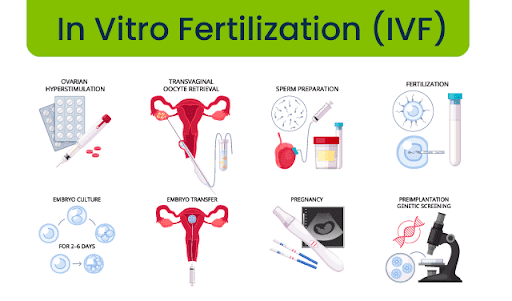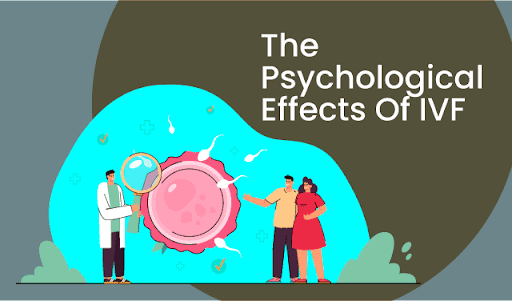Introduction
Having an IVF treatment can be an exhausting process, emotionally and physically. Research findings indicate that assigned couples are psychologically well while attending IVF programs. The most common breakthroughs during the IVF process are depression and anxiety. IVF couples experience more stress during pregnancy than normal fertile parents. Researchers suggest that psychological and social factors, such as depression/ anxiety and weak coping strategies, are the reasons for a lower pregnancy rate following IVF.
Our Wellness Programs
What is IVF
IVF is a fertilisation process that combines an egg with sperm in vitro or in a laboratory dish outside the body. Learn about the effects of IVF on mental health here.
Looking for services related to this subject? Get in touch with these experts today!!
Experts

Kirti Bajpai

India
Psychologist
Experience: 5 years

Neelam Parwani

India
Life Coach
Experience: 5 years

Mansi Chawla

India
Psychologist
Experience: 12 years

Sapna Zarwal

India
Psychologist
Experience: 19 years

Deepti Gandhi

India
Life Coach
Experience: 6 years
When it comes to IVF, how long does it take from start to finish the process?
- Women undergo hormonal tests, egg count and quality, and blood tests such as A.M.H., prolactin, thyroid, haemoglobin, blood sugar, and ultrasounds to conceive. The male IVF tests include semen analysis, checking sperm count,
- Hormone injections are provided for 9 to 12 days to grow follicles and make the eggs mature.
- After 34 to 36 hours, doctors transfer the eggs into a specific medium to the lab. They then place the eggs in a breeding place. Doctors can fertilise sperms in two ways- IVF and I.C.S.I. In IVF, the embryologists place sperm along with eggs. Afterwards, they fertilise naturally. In I.C.S.I., doctors fuse the sperm with eggs in case of any issue related to low sperm count.
- The embryos contain the premium capacity for implantation. Doctors keep a silicone tube inside the uterus on the particular day of embryo transfer. Next, they further insert the embryos with the assistance of ultrasound guidance.
Will the baby be biologically related to the donor in the process of IVF?
- Although the baby is very much related to the donor eggs provider, it’s important to note that it will not be genetically or biologically related.
- A DNA test on a baby born to a heterosexual couple who used donor eggs to treat age-related infertility, for example, would reveal that the child is genetically related to the Father (the sperm) but not to the mother. It is one of the most challenging concepts for couples to grasp when using donor eggs.
- For example, if a D.N.A. test is performed on a born baby to heterosexual partners using donor eggs in the case of age-related infertility, the result would show that the born child is related to the Father (sperm) genetically and not to the mother. Therefore, in such sensitive issues, a professional psychologist plays a crucial role in ensuring the mental well-being of parents.
What are the criteria for surrogates?
- To be eligible and approved by the authority, the surrogate mother must be between 25 to 35 years old and possess a psychological and medical fitness certificate for surrogacy.
- The doctor determines a healthy B.M.I. to ensure that the person can carry one pregnancy successfully to term.
- Other factors include the person needing to be off anti-depressants or anti-anxiety medication for at least 12 months. Along with physical requirements, every woman must go on a journey of well-adjusted emotional and psychological states.
- With continuous appointments, it becomes necessary for the psychologist to form a close relationship with the partners. A surrogacy expert or professional must guide the entire process, answering all questions. It is essential to have a solid mental pursuit while becoming a surrogate and undergoing extensive procedures.

Is surrogacy compensated, and if so, how much?
The average surrogate base pay for a first-time surrogate is $25,000. This base compensation allows to procure a financial goal or help better the family’s situation. Women, for instance, use the surrogate mother’s pay to put a down payment on a house, pay off their student loans or continue their education, start saving for their children’s educations, and more. In India, Surrogates get between Rs 4,00,000 to Rs 1.2 million per birth. The exact amount depends on the location and the clinic. In the case of surrogacies involving twins or triplets, the payment increases to somewhere between $10,000 – $20,000.
Generally, Surrogates deliver on an instalment basis throughout the process, usually divided into three ways: Compensation based on competition, any additional payments based on the operation of the pregnancy and covering all surrogacy and reimbursement services during the process.
Conclusion
Modern techniques in human reproduction have evolved gradually, and the rate of success in surrogacy is becoming remarkably promising. In the contemporary methods of human reproduction, endless studies are being conducted, resulting in more and more discoveries of excellent and significant information.
Several factors determine success rates for IVF, including the cause of infertility, the location where doctors perform the procedure, whether the eggs are frozen or fresh, and whether the eggs are a donor’s or one’s own. The case of IVF is a highly significant contribution to the modern human reproduction techniques modern times.
The emergence of different methods and procedures related to modern reproduction indicates the importance of repetition in humans. Hence, all researchers involved in the care of the patients must be thorough and maintain a heightened awareness of the potential critical issues in the future.















